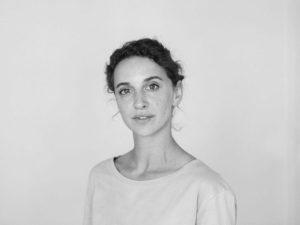During the 2024 AFIELD Forum: Systems Change by Artists, Alliance Digital Editor Charlotte Kilpatrick interviewed AFIELD director Sandra Terdjman.

AFIELD director Sandra Terdjman (Photo: AFIELD)
Sandra Terdjman is a curator and advisor in arts and philanthropy. She supports the role of arts and culture in society as a founding member of different successful organisations like KADIST (Paris/San Francisco) an exhibition and residency program based on an international collection, COUNCIL (together with Grégory Castéra), an organisation that favors multidisciplinary projects at the crossroads between arts, sciences, and civil society, and more recently, AFIELD.
She also advises different philanthropic organisations and was awarded in 2019 the Montblanc de la Culture Arts Patronage Award.
Charlotte Kilpatrick: Can you tell me how AFIELD started?
Sandra Terdjman: AFIELD began in 2014 with two fellowships awarded to artists and cultural entrepreneurs who had created impactful social initiatives for their communities. The idea was born from the need to bridge two worlds: the arts and philanthropy. We wanted to show that artist-led initiatives can not only inspire creative expression and imagination but also bring about tangible social change.
CK: From what I understand, AFIELD operates as both a funder and a recipient of funding. Can you explain that process? Where does your funding come from?
ST: The fellowship started through a dialogue with the Tsadik Foundation. Over time, we gained the trust of an international group of supporters who contribute annually. Other foundations that are invested in the intersection of arts and social justice, like the Supporting Act Foundation, have also played a key role in sustaining the program. Partnerships with museums and institutions like KANAL-Centre Pompidou are essential for the public events, components of AFIELD.
CK: As both a funder and a fundee, how does the experience of applying for grants shape how you give grants? Does it influence your approach?
ST: Absolutely. When you create a grant, you can either empower the applicants by offering tools and asking meaningful questions, or you can hinder their progress by making the process overly complex. For example, providing a clear budget template saves time for everyone and can be useful in the long run to the organisation. I’m a strong advocate of ‘trust-based philanthropy,’ where trust is the foundation of the exchange. The grantee’s time is better spent on their actual work, not on unnecessary administrative tasks.
CK: A term that’s often thrown around in philanthropy is ‘impact.’ AFIELD is focused on systems change, which is a big task. How do you measure impact with your grantees?
ST: As you saw at the conference, the idea of ‘system change’ was interpreted differently by the speakers, each from diverse cultural backgrounds and practices. For some, it was seen through an environmental and cultural lens, as a necessary shift in ecosystems—human relationships with the environment—while others focused on addressing the root causes of war or economic injustices.
At AFIELD, we measure impact over time, and through the ongoing dialogue we maintain with fellows. Thanks to the participatory nature of AFIELD, past fellows stay engaged for years. They recommend and vote for new fellows and suggest topics for the online study programs. Impact is assessed qualitatively; we collect stories and first-hand accounts of their work. Trips are organized to visit and work with fellow people in their community, the last one was in Chicago and the next one in Pakistan. This collaborative spirit is essential to the program and to understanding long-term impact.
CK: Since Covid, arts funding has been shrinking, particularly in the UK and the US, even though philanthropy overall is increasing. What would you say to funders who prioritize issues like climate or poverty over the arts? Why do we still need artists?
ST: What I’ve learned in the past 10 years at AFIELD, is that even when people are struggling to meet their basic needs—food, shelter, healthcare—they still need hope. The ability to imagine a different future is the expression of our humanity. Arts and culture provide that space for imagination, empathy, and connection. It’s even more urgent now to support programs that help people feel connected, ensure their culture is preserved, and allow their identity to be expressed and recognised. Without the arts, we lose the ability to envision a brighter future and to make sense of the present.





Comments (0)